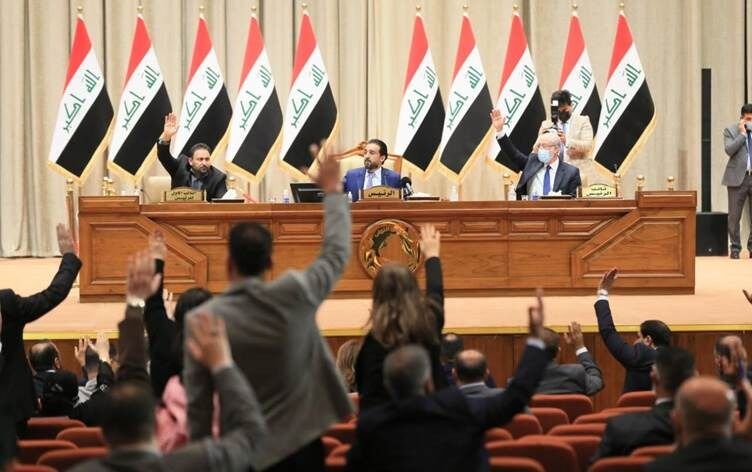There are many analyses on both aspects by experts. On micro scale approach, the modality of enforcement of the bill from political aspect does not have great importance, because in practice, there is a possibility that the bill may be subjected to some changes with supplementary laws, by-laws and also through the authority of Iraqi foreign minister and other Iraqi officials. Particularly, it is assumed that analyses as such which try to show various impediments before the enforcement of the bill, introduce it impractical or with shortcomings, are in a way originated by the Zionist lobby.
While, the decision made by the Iraqi parliament has many strategic effects. Therefore, too much attention should not be paid to those analyses; because they do not leave much effects on political equations. The important issue is: Iraqi parliament has already approved a bill with majority of votes that bans establishment of ties with Israeli regime.
Specially, according to the bill, Kurdistan Authority should also avoid establishing relations with the Zionist regime, and if they have already any relation, it should be severed.
On the regional consequences of the bill, the regional balance and its effect on the regional equations can be pointed out; in fact, the step taken by Iraqi parliament will give an upper hand to the Resistant Front and will cause problems for the Zionist regime to carry out its most essential strategy.
Stabilization of the regime is the most essential strategy in the agenda of Zionists. They have made efforts for the past three decades to establish their relations with Arab countries and thus to obtain a kind of legitimacy.
Therefore, if we pay due attention that establishment of relations with Arab countries is the most crucial issue that the Zionist regime pursues aiming at stabilizing its position, then we realize the impediment that the recent bill approved by Iraqi parliament has created for realization of the aspiration of Tel Aviv.
During the presidency of Donald Trump, the Zionist regime made a lot of effort to use the lobbies that could impress him and to quickly establish these relations.
Simultaneous with Trump presidency, Tel Aviv was pursuing two issues; first, Great Deal of the Century followed by normalizing relations of Arab countries with the regime and second; the annexation of the West Bank. Both of these plans were suspended after the removal of Netanyahu and Trump from power scene.
Therefore, during Trump’s tenure of office, the Zionist regime managed to establish ties with only four countries of UAE, Bahrain, the Sudan and Morocco, and in some these small countries we witnessed popular rallies against the measure. Consequently, the Zionist regime decided to establish ties with large Arab countries like Saudi Arabia and thus to keep other countries that had already established their relations with the regime remain committed for their decision.
Now, the recent bill of Iraqi parliament has made obstacle before Saudi Arabia too. The country is unable to easily take step to normalize its ties with the regime.
Yet, some of legal experts believe that the bill approved by Iraqi parliament on banning normalization of ties with the Zionist regime has some deficiencies that should be removed during upcoming sessions of the Parliament. Including and among them is Article 4 of the said approval that allows religious trips made by the official authorization of the Ministry of Interior; therefore, according to Article 4, Iraqis can pay pilgrim trips to religious sites and locations in the occupied territories and the Zionist Jews can also travel to Iraq under the pretext of religious trips; and through exchanges of religious visits, justify the normalization process and proceed with it.
However, it is said that inclusion of the said article in the Approval of Iraqi Parliament was made for two reasons:
First; To observe the rights of Jewish minority residing in Iraq
Second; the approval of Iraqi Parliament is not considered within the framework of anti-Semitic measures.
Because, neither Iraqi people and government, nor the Iraqi Parliament oppose the Jewish faith and Jews, instead, they are opposing the normalization of relations with Zionism and the illegitimate occupying Zionist regime.










0 Comments